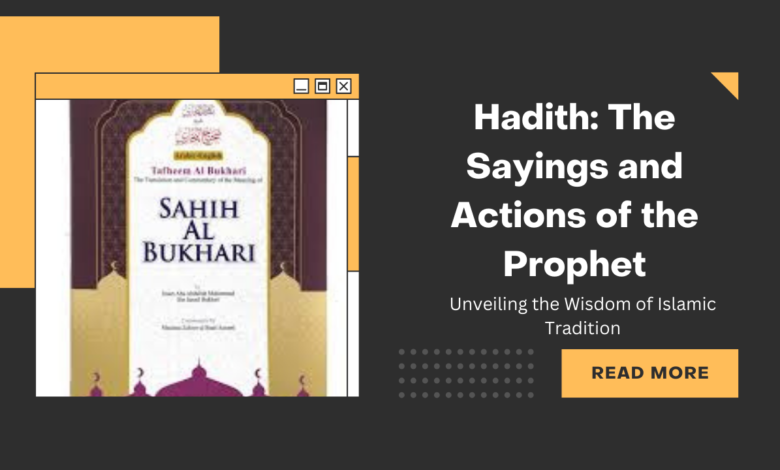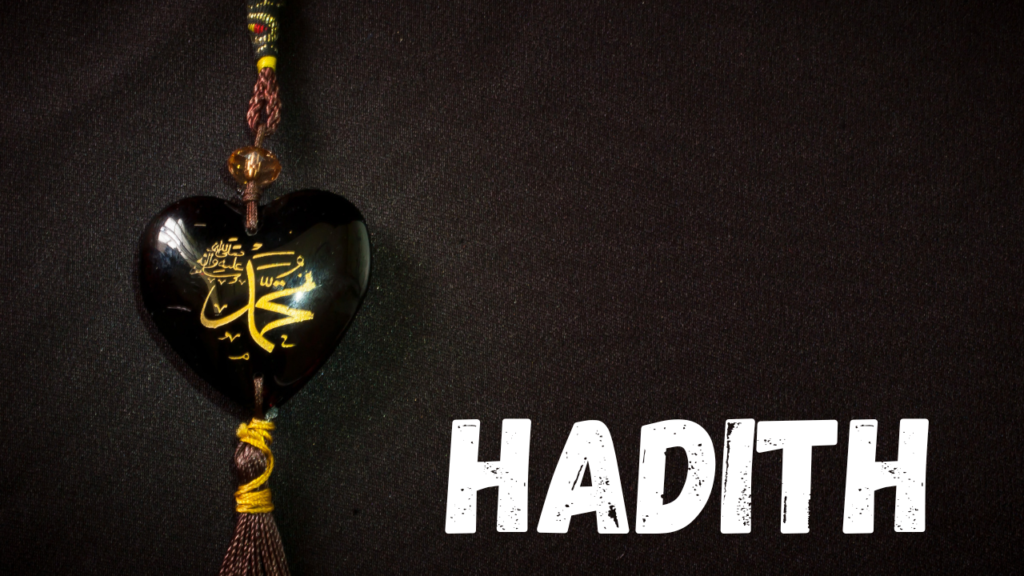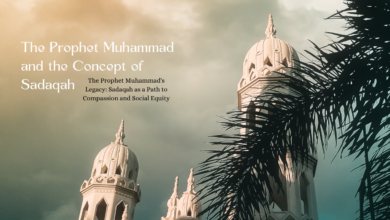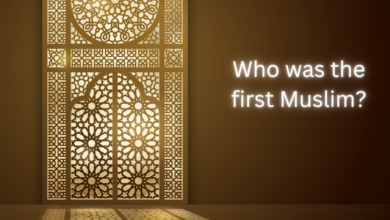
Hadith: The Sayings and Actions of the Prophet
A Hadith is a collection of sayings, actions, approvals, and descriptions of the Prophet Muhammad (peace be upon him). It serves as a source of guidance and interpretation of the Quran for Muslims.

Introduction
Hadith, the collection of sayings and actions of the Prophet Muhammad (peace be upon him), holds a central and revered place in Islam. These narrations provide valuable guidance, religious teachings, and insights into the life of the Prophet, serving as a vital source of knowledge for Muslims worldwide. In this article, we will explore the significance of Hadith, its classification, and its role in shaping Islamic jurisprudence and daily life.
What is Hadith?
Hadith, in Arabic, means “report” or “narration.” In the context of Islam, it refers to the recorded accounts of the words, actions, approvals, and disapprovals of the Prophet Muhammad (peace be upon him). The Hadith is considered the second most important source of guidance for Muslims, after the Quran, the holy book of Islam.
Compilation of Hadith
The preservation of Hadith began during the lifetime of the Prophet Muhammad (peace be upon him). Companions and followers of the Prophet meticulously memorized and transmitted his sayings and actions to ensure their accuracy. These oral traditions were later compiled into written collections.
Several scholars played a significant role in collecting and categorizing Hadith, with the most famous compilations being:
- Sahih al-Bukhari: Compiled by Imam Bukhari, it is considered one of the most authentic and comprehensive collections of Hadith. Imam Bukhari meticulously sifted through thousands of narrations to include only those with impeccable chains of transmission.
- Sahih Muslim: Compiled by Imam Muslim, this collection is also highly regarded for its authenticity and is often studied alongside Sahih al-Bukhari.
- Sunan Abu Dawood, Sunan an-Nasa’i, Sunan at-Tirmidhi, Sunan Ibn Majah, and Sunan ad-Darimi: These are other well-known Hadith collections that offer additional insights into the Prophet’s teachings and actions.
Also Check
- What is Judgement day in Islam?
- Which Hadith do Sunnis follow?
- What is Hadith?
- Sahih al‑Bukhari
- What year was Islam founded?
Classification of Hadith
Scholars have classified Hadith into several categories based on their authenticity and content:
- Sahih (Authentic): These Hadith are considered the most reliable, with a continuous and unbroken chain of trustworthy narrators. Both Sahih al-Bukhari and Sahih Muslim primarily consist of Sahih Hadith.
- Da’if (Weak): Weak Hadith have some weakness or discrepancy in their chain of narration, making them less reliable for deriving religious rulings.
- Hasan (Good): These Hadith are deemed acceptable, though not as strong as Sahih. They are considered reliable for general guidance but may not be used to establish legal rulings.
- Mawdu’ (Fabricated): Mawdu’ Hadith are outright fabrications or forgeries and hold no place in Islamic teachings.
Significance of Hadith
Hadith serves several critical functions within Islam:
- Clarification of Quranic Verses: Hadith provides context and explanations for the Quranic verses, helping Muslims understand the intended message and application.
- Legal and Jurisprudential Guidance: Islamic jurisprudence (Fiqh) heavily relies on Hadith to derive rulings on various aspects of life, including prayer, fasting, charity, and more.
- Moral and Ethical Guidance: Hadith offers valuable insights into the Prophet’s character, allowing Muslims to emulate his exemplary conduct and ethical principles.
- Historical Documentation: Hadith preserves a detailed account of the Prophet’s life, enabling scholars and historians to study the history of early Islam.
- Spiritual and Personal Development: Hadith provides spiritual guidance, encouraging Muslims to improve themselves and strengthen their faith through acts of worship, kindness, and compassion.
Conclusion
Hadith, the collection of the sayings and actions of the Prophet Muhammad (peace be upon him), plays a vital role in shaping the beliefs and practices of Muslims. It serves as a source of guidance, law, and inspiration, providing valuable insights into the life and teachings of Islam’s final prophet. The careful preservation and classification of Hadith ensure that this rich treasure of knowledge remains an enduring source of spiritual and practical wisdom for generations of Muslims.

(FAQs) about Hadith, which are the sayings and actions of the Prophet Muhammad (peace be upon him):
What is a Hadith?
A Hadith is a collection of sayings, actions, approvals, and descriptions of the Prophet Muhammad (peace be upon him). It serves as a source of guidance and interpretation of the Quran for Muslims.
Why are Hadith important in Islam?
Hadith are crucial in Islam because they provide additional context and clarification to the Quran. They help Muslims understand how to implement the teachings of the Quran in their daily lives.
How were Hadith collected and preserved?
Hadith were initially passed down orally and then gradually recorded in written form. Scholars meticulously scrutinized the authenticity of these narrations and compiled them into collections, such as Sahih al-Bukhari and Sahih Muslim, based on their reliability.
Are all Hadith equally reliable?
No, not all Hadith are equally reliable. Islamic scholars categorized Hadith into various categories based on their authenticity, with Sahih (authentic), Hasan (good), and Da’if (weak) being the most common classifications.
What is the significance of Sahih Hadith?
Sahih Hadith are the most reliable and authentic narrations. They are considered a primary source of guidance in Islamic jurisprudence and theology, and they carry significant weight in matters of belief and practice.
How do Muslims use Hadith in their daily lives?
Muslims refer to Hadith to understand the Prophet’s actions and teachings in various aspects of life, including worship, morality, etiquette, family, and societal matters. They seek to emulate his example in order to live according to Islamic principles.
Can anyone narrate a Hadith?
In theory, anyone can narrate a Hadith, but its authenticity depends on the chain of narrators (Isnad). Skilled scholars assess the reliability of each narrator in the chain to determine the Hadith’s authenticity.
Are there any Hadith collections that are universally accepted by all Muslims?
While some Hadith collections are widely accepted, like Sahih al-Bukhari and Sahih Muslim, there is no single collection that is universally accepted by all Muslims. Different Islamic sects and schools of thought may have variations in the Hadith collections they consider authoritative.
How can one differentiate between authentic and fabricated Hadith?
Differentiating between authentic and fabricated Hadith requires expertise in Hadith science. Islamic scholars use rigorous criteria to evaluate the chain of narrators (Isnad) and the content (Matn) of each Hadith to determine its authenticity.
Can Hadith contradict the Quran?
No, authentic Hadith cannot contradict the Quran. If a Hadith appears to contradict the Quran, it is likely that the Hadith is misunderstood or weak in its authenticity. Islamic scholars ensure that Hadith align with the Quranic teachings.






